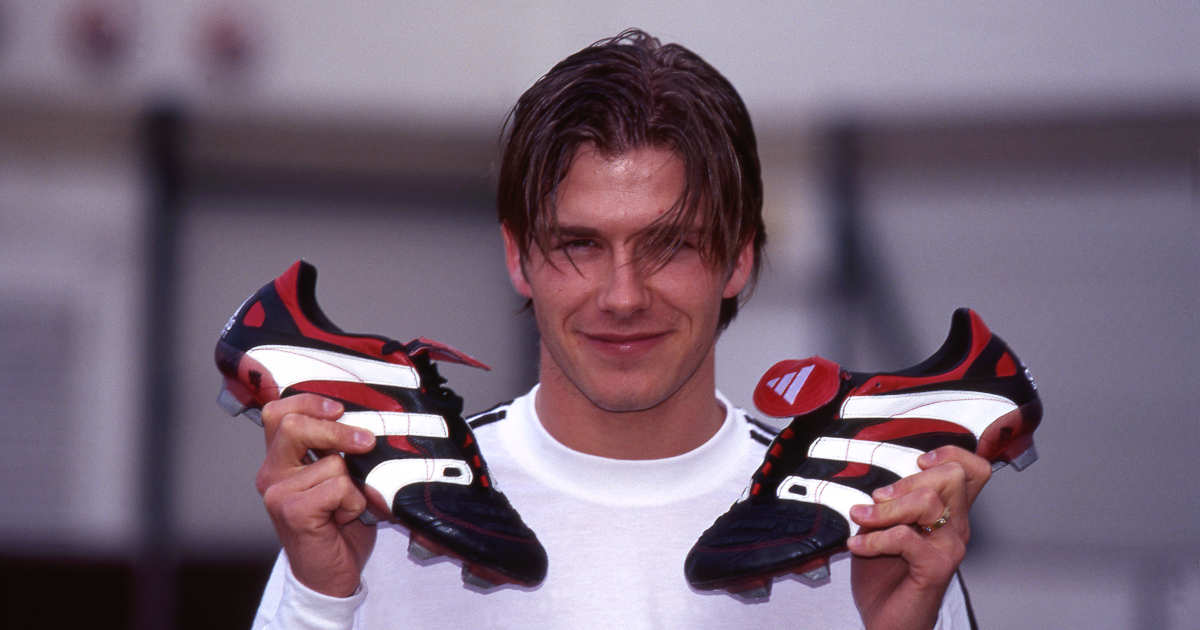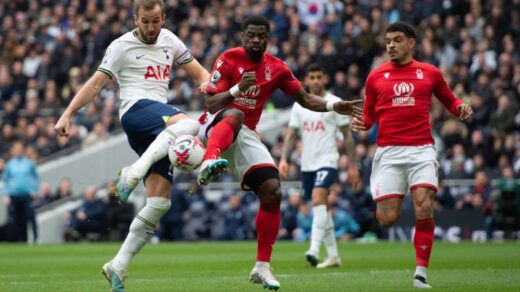It’s tempting to think of Romeo as just another Beckham nepo baby, but Brentford believe in science, so there must be evidence.
O Romeo, Romeo, wherefore art though Romeo?
Deny thy father and refuse thy name
From a 14th century nepo baby to one born in the 21st century, a name can get you a long way.
The recent social media uproar over what looked like the collective realisation of an entire generation that desirable jobs are often filled by the children of those already in an industry largely concerned the media – for the record, I am the son of a scrap metal dealer – but while such a name can only get you so far in football, it can still give you a start.
The advantages are obvious. It’s easier to get spotted in the first place and get that initial opportunity if you’re the son of a former England legend than if you’re standing in line with 49 others on a park pitch on a Saturday morning.
And, perhaps surprisingly, science believes that inherited characteristics do – or at least can – matter. A study published by the Department of Biological Psychology at Vrije Universiteit in Amsterdam concluded that ‘the heritability of athlete status was estimated at 66 percent’. A 2013 study published in the British Medical Journal agreed: ‘Although deliberate training and other environmental factors are critical for elite performance, they cannot by themselves produce an elite athlete’.
But it is certainly not the case that the children of great players have produced offspring who have gone on to scale the same heights themselves. If anything, there are surprisingly few truly great players who are the offspring of equally truly great players. The only example that seems to get anywhere near close – and I should be clear that we’re talking inter-galactic distances, here – could be that of Johann and Jordi Cruyff, though that does rather fall flat on the greatness of the second part of the equation.
And that seems to be because you can’t just train yourself to be a great footballer; environmental factors are also important. Consider, for example, the examples of Pele and Diego Maradona, who learned street smarts growing up in poverty in Brazil and Argentina respectively which turned out to be extremely useful when they actually got out onto the pitch for professional matches. The genetics might give you a physical head start and a better chance of getting spotted, but that can only make part of the formula.
The Beckhams will already be aware of this because Romeo’s older brother has already had a go. Brooklyn Beckham walked away from the game after a spell with Arsenal’s academy and is now a former model. In November, he told Bustle that his ‘sensitive’ nature – “I’m a Pisces. Sensitive” – had been what prevented him from pursuing a career in the game. For the record, other Pisces footballers include Didier Drogba, Casemiro and Pepe. Romeo had taken a similar path, also playing at Arsenal’s academy before giving it up and trying to be a professional tennis player before returning to the game in 2020.
But the arrival of Romeo Beckham in the Premier League is all the more intriguing for where he is landing. Brentford are a club run by the appliance of science. They seem among the least likely in the entire division to take a speculative punt on some chancer who sounds superficially appealing because his dad has got a famous name. And Romeo is absolutely not some completely unknown entity. He’s made 26 appearances for Inter Miami II in the MLS Next Pro reserve league in the USA. So the extremely tempting question is…what might they have seen?
Of course, the identity of the club at which he made those 26 appearances may be considered proof of this nepotism. David Beckham is a co-owner of Inter Miami, after all. And there will be those who claim that this is all a publicity stunt, though this does beg the question of what Brentford would be getting out of this arrangement. The benefits to Brand Beckham of a raise in profile should be obvious, but there will no benefit to Brentford if he doesn’t make the grade.
And this, of course, is where the nepotism ends. If he doesn’t make the grade, if it turns out that he hasn’t inherited his father’s right foot after all, it will be unlikely that he will be seeing too much Premier League action with Brentford. The stakes are simply too high. When we look at how football deals with hiring new managers or its representation in the media, we can already say with a degree of confidence that the game isn’t afraid of having an element of old boys’ network about it. But the boundary of the pitch is where this ends. There’s little room for sentiment when there are points worth millions of pounds to be won.
There may well now be talk about whether Romeo Beckham will play Premier League football for Brentford, and it’s possible that he might. It is clear, from comments made by Brentford backroom staff, that they consider Beckham junior to have come to their B team on merit. But whether that blossoms into a full career remains open to question. Although Brentford’s B team manager Neil MacFarlane has already confirmed that he was impressed with his attitude, that five-year gap on Beckham’s CV does raise questions.
If he doesn’t make the grade, will he have the graft to keep going until he finds his level? Brentford are in the top half of the Premier League and it’s a long way down. Lower division and non-league clubs are packed to the rafters with players who didn’t quite make it at a higher level. How many levels would Romeo Beckham be prepared to drop before he decided that it might be more fun to have a go at, say, being a professional golfer instead?
It’s unfair to make this sort of comparison, to expect the son to be a carbon copy of their father. David Beckham was a lavishly talented player, one who defined the game in England for the best part of a generation. For all the advantages that they may hold, the children of professional players will be found out one way or the other once they’re on the pitch.
And perhaps our breathless discussion of these child prodigies says more about us than it does about them. None of us are getting younger, and it’s fun to imagine that younger versions of the players that we enjoyed when we were considerably less brow-beaten could eventually be planted into the game as a reminder of when we were younger and less cynical.
But Romeo Beckham will not succeed or fail on the basis of nepotism or the fever dreams of our mid-life crises. On the pitch, professional football remains a meritocracy because it has to be one, and Romeo Beckham the professional footballer will either fail or succeed on those terms. For all that we may rail against the over-commercialisation of the game, it’s for the best that this remains the case.




